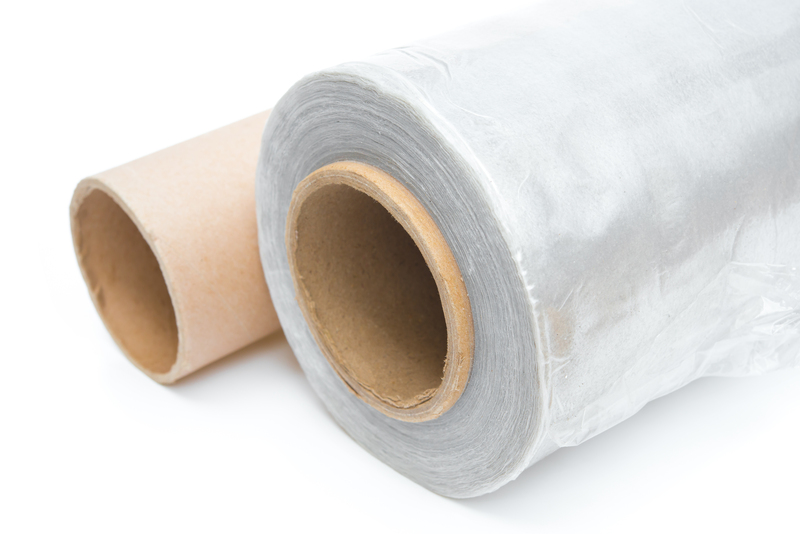How to Prevent Mold and Smells While Your Freezer Is in Storage
Storing a freezer properly is crucial if you want it to remain in pristine condition, ready to use whenever you need it again. Nothing is worse than opening a stored freezer only to be greeted by unpleasant odors or visible mold. Thankfully, by following best practices, you can prevent mold growth and bad smells during storage. This guide will provide you with practical, science-backed strategies to protect your freezer and keep your investment safe.
Why Does Mold and Odor Occur in Stored Freezers?
Mold and unpleasant odors both stem from the same core issues: moisture, warmth, and organic matter. Freezers often trap humidity and food residues even after being emptied, creating an environment where fungi and bacteria thrive -- especially when the freezer is not running. Mold can start growing within 24-48 hours under optimal conditions, and bacteria often cause musty or sour smells.
- Mold spores are ever-present in the environment and only need the right conditions to flourish.
- Food residues and spills left behind provide nutrients for mold and bacteria.
- Residual moisture inside a sealed, inactive freezer creates a humid, stagnant atmosphere.

Step-by-Step Guide: Preparing a Freezer for Storage
1. Empty and Defrost Thoroughly
The first step to preventing mold and smells when storing your freezer is to remove all contents and unplug the appliance. Place towels or trays underneath to catch drips as it thaws. Defrosting is essential, as ice and frost trap moisture.
- Remove every item: Even a small crumb left behind can cause issues.
- Allow ample time: Defrosting can take several hours (or even overnight) depending on ice buildup.
- Use a soft cloth to mop up any water once the freezer has thawed.
2. Deep Clean All Surfaces
With the freezer completely thawed and empty, it's time for a meticulous clean -- the key to keeping a stored freezer fresh and mold-free. Use a gentle mixture of baking soda and water (about 2 tablespoons per quart) to cleanse every interior and exterior surface.
- Don't forget: Ensure corners, gaskets, drawers, and shelves are scrubbed well.
- For stubborn grime, use a soft brush or a toothbrush. Avoid abrasive pads that can damage surfaces.
- Rinse thoroughly and dry completely with a soft, clean towel.
Baking soda not only cleans but also neutralizes lingering odors -- it's a natural deodorizer perfect for freezers.
3. Sanitize to Kill Mold Spores
It's a smart move to go beyond simple cleaning by sanitizing your freezer before storage. Use a solution of 1 tablespoon of unscented liquid bleach per gallon of water. Wipe down all surfaces, then allow them to air dry completely with the door open before proceeding.
- Caution: Never mix bleach with ammonia or other cleaners!
- Wear gloves and ensure good ventilation.
- Use this step especially if there's any concern about previous spills or possible mold exposure.
4. Dry the Freezer Completely
Moisture control is the most important factor when preventing mold and odors. After cleaning and sanitizing:
- Leave the freezer open for at least 24 hours in a dry space (longer if possible).
- Use fans or place in a sunlit, well-ventilated area to accelerate drying.
- Check gaskets, drawers, and depressions for trapped water. Mold can develop in hidden places.
5. Deodorize and Add Moisture Absorbers
For added protection (and peace of mind), add materials that absorb moisture and odors during storage:
- Baking soda: Place an opened box of baking soda inside.
- Activated charcoal: Effective at absorbing smells -- wrap in breathable fabric or purchase sachets.
- Silica gel packs: Commercially available or saved from packaging, they help reduce humidity.
- Unscented cat litter can also act as an odor-absorbing, moisture-reducing agent in a pinch.
6. Store with the Door/Open or Venting
Never store a freezer with the door tightly closed! This is the most common mistake people make. An airtight, idle freezer can trap any residual moisture, accelerating mold growth and sealing in odors.
- Slightly wedge the door open using a rolled towel, bungee cord, or small object.
- Some freezer models allow removal of the door for long-term storage, which is even better for ventilation.
- Alternatively, secure the door ajar with masking tape, ensuring it cannot accidentally close.
Airflow prevents stagnant conditions, allowing the freezer to "breathe" and stay fresh.
7. Store in a Suitable Location
Where you store your freezer matters. Choose a space that is:
- Cool and dry: Avoid basements susceptible to flooding or high humidity, and garages that suffer condensation.
- Off the ground: Place the freezer on blocks or pallets if storing in an area prone to ground moisture.
- Away from direct sunlight, which can damage seals and increase interior humidity.
Extra Tips: Long-Term Freezer Storage Maintenance
Check on Your Stored Freezer Regularly
If possible, inspect your freezer every few months. Quick checks allow you to catch any developing odors or moisture problems early.
- Look for dampness, mold spots, or rust on seals and lining.
- Swap out baking soda or moisture absorbers every 2-3 months for optimal freshness.
- A quick wipe-down with baking soda solution every 6 months can reset freshness.
What to Do If You Find Smells or Mold After Storage
Even with the best-made plans, sometimes unpleasant smells or mild mold develop. Here's how to handle it:
- Re-clean the freezer with a baking soda and water mixture or a vinegar solution (1:1 vinegar and water). Vinegar kills up to 82% of mold species and neutralizes stubborn odors.
- Sanitize with the diluted bleach solution as described earlier.
- Dry completely and repeat deodorizer placement before storing again.
Persistent odors may require repeated cleanings, airing out, or stronger odor removers like commercial enzyme sprays.
Common Mistakes to Avoid When Storing Your Freezer
- Leaving traces of food or spills inside. Even invisible residue can cause major issues over time.
- Storing with the door fully closed. This is the #1 cause of mold and freezer odor during storage.
- Shortcutting the drying phase. Any moisture will lead to problems. Be thorough and patient.
- Ignoring the storage environment. Even if you prepare the freezer perfectly, a humid, damp storage location can undo all your work.
FAQs About Preventing Mold and Smells in Stored Freezers
How do I stop my freezer from smelling after storage?
Odor prevention is all about cleanliness, complete drying, door ventilation, and odor/moisture absorbers. Follow the steps above and don't skip placing an opened box of baking soda or activated charcoal inside. Always store with the door slightly open.
Is it okay to store a freezer outside?
Storing a freezer outdoors is risky due to exposure to humidity, rain, temperature extremes, and pests. If you must store outside, use a waterproof, breathable cover, elevate the freezer, and ensure ventilation -- but indoor storage is always best for long-term freshness and to prevent mold growth.
Can I use air fresheners in my empty freezer?
Avoid scented air fresheners, which may leave a chemical residue or impart artificial odors to the freezer. Natural options like baking soda, charcoal, or even dry coffee grounds (in a breathable bag) are safer and more effective at neutralizing freezer odors.
Should I remove freezer shelves before storage?
If possible, take out all removable parts, clean and dry them separately, and store inside the freezer with the door ajar (or separately nearby). This ensures every component is dry and mold can't develop between parts.

Conclusion: Keep Your Freezer Fresh and Ready
Storing your freezer is a perfect opportunity to give it a thorough clean and maintenance. With proper preparation and attention to drying and ventilation, you can confidently prevent mold and bad smells from developing during storage. The extra time you put in before storage pays off when your freezer is needed again -- fresh, odorless, and free from unwanted growths!
Remember: Empty, clean, dry, open, and absorb -- these five steps are your best defense against musty, moldy freezers. Whether you're storing a chest freezer, upright model, or even a mini-freezer, these practices ensure optimal results for any type of appliance.
Keywords and Related Phrases Optimized in This Article:
- Preventing mold and smells in stored freezers
- How to store a freezer without odors
- Freezer storage mold prevention
- Keep freezer fresh while not in use
- How to avoid freezer odors and mildew
By following these tips, your freezer will stay cleaner, odorless, and ready for use whenever you need it again! If you have further questions or want more home appliance maintenance tips, check out our blog archives for more in-depth guides and expert advice.